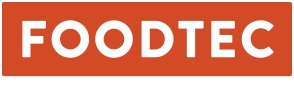No matter the industry or company size, all businesses must adhere to certain laws and regulations as part of operations. When it comes to the food and beverage industry, businesses must comply with a myriad of regulations – from business licenses and inspections to health and safety and labor laws.
Knowing and staying up to date on all requirements can be challenging. But in order to avoid your restaurant from enduring penalties and fines, it’s a good idea to review your compliance a couple of times a year and to stay on top of industry news on new rules and regulations.
The challenge
The regulations for restaurants are complex and should be followed meticulously. Why?
The main or obvious reason is that should you fail to comply or meet the necessary industry requirements, you open yourself up to potential lawsuits and financial liability that could do lasting damage. Violations can be costly and dangerous – many regulations for the food service industry carry significant fines for non-compliance. In addition, managers and owners who do not stay current with laws that apply to their restaurant not only put their reputation on the line, but their entire business operation at risk, including their staff, and their customers.
Penalties aside, most employers and businesses want to be in compliance. But, given the extensive number of rules a business needs to comply with, staying up-to-date on regulations can be quite difficult. Regulations can be specific to your city, state, restaurant type, chain size (# of restaurants in brand), etc. Regulations, standards, and laws are also fluid, meaning they change often and in turn, the compliance target is always moving. Every year the Federal government agencies issue thousands of rules. Congress enacts hundreds of laws annually. New regulations sometimes replace existing ones and sometimes they add more layers of complexity. In addition to, and on top of federal standards, local and municipal have their own laws and requirements which can vary from state to state.
From the outset it can seem like an overwhelming task to try and keep up with all the requirements – even the most diligent of owners can miss an important rule. So how can you stay on-top and maintain compliance?
Where to begin?
Various regulatory government agencies oversee different aspects of your business. Understanding the “who does what” will go a long way to ensure compliance. A good way to think of them would be:
- Administrative regulations
Every business needs licenses and permits to operate, and as a restaurant owner you’ll likely have to obtain several of both. Different cities, counties and municipalities have their own unique license and permitting requirements for restaurants. For example, common permits include a food handlers permit, liquor license and providing live entertainment but did you know you may need a permit to dispose of grease from your cooking process, to allow outdoor seating on the sidewalk, permission to install a fire alarm and even whether you have a pool table or not!Check with both state and local authorities to ensure you’re aware of all license and permit requirements needed for your restaurant to operate.
Once you get your licenses and permits, display them as required. Make copies and keep them in a safe place. It’s important to note that some licenses and permits expire annually, while others last for a few years. Develop a system to keep track of when your permits expire so you can start the renewal process well in advance.
- Food Regulations
The Food and Drug Administration (FDA) sets the Federal Food Code, protecting the public health by assuring that foods are safe for consumption. The code is updated every four years and provides a list of best practices for keeping restaurants free from food-borne illnesses. However, the FDA doesn’t oversee individual bars and restaurants. Instead, they have outlined food service codes and regulations for every state. Each state can use the Food Code as the basis for their own food codes and may adopt its rules, interpret them differently or set their own rules.Therefore, to ensure compliance – you need to follow your own state’s foodservice code. Visit the FDA website for a list of food service codes by state. Use this to find the state authority handling restaurants and bars and view the laws that apply in your state.
- Management Regulations
Labor is a key component of your business and with that comes regulations applying to hours of work, wage laws, required breaks, hiring and firing practices, age requirements, overtime etc. The US Department of Labor provides clear information regarding federal wage and labor laws and will help employers to get in compliance. And similar to all other areas of your business, labor laws will vary from state to state so check with your state government’s labor department to get up to speed on any differences in your state.Furthermore, you must comply with federal laws regarding workplace safety and health. The Occupational Safety and Health Administration (OSHA) – an agency run by the Department of Labor – establishes and enforces these regulations in the restaurant industry as well as in many other industries. OSHA restaurant safety rules are intended to ensure that the health and safety of patrons and workers is your primary concern. To ensure your compliance with OSHA regulations for restaurants, an OSHA inspector may visit and respect your establishment – even more so now due to the COVID-19. In response to pandemic, OSHA updated its COVID-related workplace protocols. As dining is seen as a place for potential spread of COVID-19, OSHA targets full-service and limited-service restaurants for inspections.




